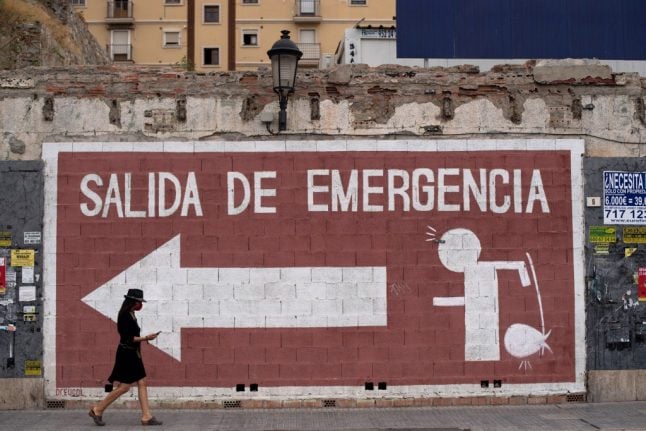The new data published on Monday afternoon brings the total of those who have tested positive to coronavirus since the start of the pandemic to 405,436 across Spain.

In the last 24 hours alone, some 2,060 new infections have been detected, with 413 in the Basque Country and 409 in Madrid.

The total in the last 24 hours for other regions was reported as 292 in Andalusia, 216 in Aragon, 150 in Galicia, 115 in the Canary Islands, 95 in Navarra, 84 in Catalonia, 78 in La Rioja, 42 in Extremadura, 38 in Castilla La Mancha, 37 in Cantabria, 33 in Castilla y Leon, 25 in Melilla, 19 in Asturias, 6 in the Balearic isles, 5 in Murcia, 2 in Valencia and just one in Ceuta.
But the data shows the rising trend with 78,148 new positive cases over the last fortnight representing an accumulated incidence over the last 14 days of 166.18 per 100,000 people.
The data also reveals that 498 people have been hospitalized with Covid-19 since Friday with 38 in intensive care units. The Health Ministry reported that the death toll had risen by 34 since Friday bringing the official total to 28,872 – although that only includes the deceased who tested positive to tests before they died.
Datos sobre #COVID19 en España, desde el primer caso inicial, actualizados a hoy 24 de agosto:
▶️Confirmados por PCR: 405.436
▶️Fallecidos: 28.872Información por CC.AA.:https://t.co/9k64xpVh96#NoLoTiresPorLaBorda pic.twitter.com/K27q0BPtZF
— Salud Pública (@SaludPublicaEs) August 24, 2020
Earlier in the day, several regions across Spain announced new measures in a bid to slow the spread of the virus.
Catalan premier Quim Torra announced a new limit on social gatherings with no more than 10 people allowed to meet socially at a time.
In Murcia, the regional government went even further and capped the figure at six people per gathering.
Meanwhile, authorities in Madrid, which is at the epicentre of the latest surge rejected introducing a formal limit on gatherings but did urge people to “avoid unnecessary social interaction”.
However, the regional government has shut down bars and restaurants for a period of 14 days in the municipality of Tielmes after an outbreak in which 45 people have so far tested positive and advised its 2,700 residents to “stay at home”.
READ MORE:



 Please whitelist us to continue reading.
Please whitelist us to continue reading.
Member comments